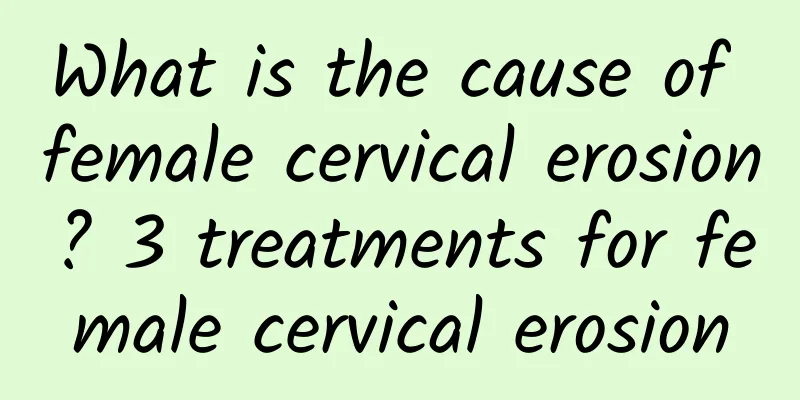Several vegetables that can easily cause miscarriage

|
There is no evidence that certain vegetables can directly cause miscarriage, so there is no such thing as the top ten vegetables that are prone to miscarriage. However, improper handling or eating insufficiently washed vegetables may increase the risk of miscarriage. Pregnant women should maintain a diversified diet and avoid consuming insufficiently washed vegetables, vegetables containing large amounts of nitrates, vegetables that are prone to allergies, vegetables containing oxalic acid, vegetables with high pesticide residues, etc., to avoid adverse reactions. If you feel unwell, it is recommended to seek medical attention in a timely manner. The details are as follows: 1. Inadequately washed vegetables: Inadequately washed vegetables may carry bacteria or parasites, such as Listeria, Toxoplasma, etc. Pregnant women are prone to infection after eating them, thereby increasing the risk of miscarriage. Cause: Pathogen infection. Symptoms: Fever, diarrhea, headache, etc. Treatment: Use antibiotics, such as cephalosporins. Patients must follow the doctor's instructions to use the drugs. 2. Vegetables containing a lot of nitrates: Green leafy vegetables such as spinach and celery contain high levels of nitrates, which may be converted into nitrosamines in the human body and have certain toxicity. Cause: Nitrates are converted into nitrosamines. Symptoms: Nausea, vomiting, dizziness, etc. Treatment: Avoid consuming large amounts of such vegetables and maintain a diversified diet. 3. Vegetables that are prone to allergies: Some people are allergic to certain vegetables such as peanuts and soybeans. If pregnant women ingest allergens, it may cause allergic reactions, which may affect the fetus in severe cases. Cause: Food allergy. Symptoms: Rash, difficulty breathing, anaphylactic shock, etc. Treatment: Antihistamines, such as loratadine tablets. Patients must use the drugs according to the doctor's instructions. 4. Vegetables containing oxalic acid: such as spinach, beets, etc. Oxalic acid combines with calcium to form calcium oxalate, which may cause calcium deficiency in pregnant women. Cause: Formation of calcium oxalate. Symptoms: osteoporosis, muscle cramps, etc. Treatment: Calcium supplements, such as calcium carbonate tablets. Patients must follow the doctor's instructions to use the medicine. 5. Vegetables with high pesticide residues: For example, fruits and vegetables, if the pesticide residue is high, it may have adverse effects on the health of pregnant women and fetuses. Cause: Pesticide residues. Symptoms: Headache, nausea, vomiting, etc. Treatment: Wash vegetables strictly and avoid eating vegetables of unknown origin. Pregnant women should pay attention to choosing fresh and cleaned vegetables in their diet, avoid consuming foods that may contain harmful substances, and protect their own health and that of the fetus. |
<<: 12 kinds of fruits you must eat after miscarriage
>>: Can I get pregnant after endometrial polyp surgery?
Recommend
It is not difficult for women to get pregnant at the age of 50 and have not yet reached menopause. Grasp the 4 points to restore fertility
Generally speaking, women will enter menopause at...
Intermittent fasting helps you lose weight and KO civilization diseases!
Starving yourself to lose weight has always been ...
Girls' pursuit of "skinny" can easily lead to amenorrhea
Recently, there is a bad sign that some girls sud...
Common treatments for uterine fibroids
Uterine fibroids mainly refer to tumors that occu...
Ovarian cysts are effectively preventable
The prevention of ovarian cysts is something that...
Several common treatments for pelvic inflammatory disease
Pelvic inflammatory disease is a gynecological di...
Can pelvic effusion cause fallopian tube obstruction?
There are six reasons why fallopian tubes are blo...
Can people with uterine fibroids take protein powder?
Can people with uterine fibroids take protein pow...
Study on low back pain symptoms of pelvic inflammatory disease
In modern society, pelvic inflammatory disease ha...
What is ovulation bleeding?
Many female friends have experienced this situati...
Eat delicious cabbage to stay healthy without forgetting dietary taboos
Chinese cabbage Other names: cabbage, Chinese cab...
A great way to boost your brain power! Don't miss these two nutrients
Why can’t children memorize English words and tex...
How to effectively prevent chronic cervicitis? Three things you must know about preventing chronic cervicitis
The cervical canal contains glandular cells that ...
What complications may occur after an abortion?
There are many women who have unexpected pregnanc...
Can endometrial tuberculosis be passed on to the child?
Can endometrial tuberculosis be transmitted to ch...









